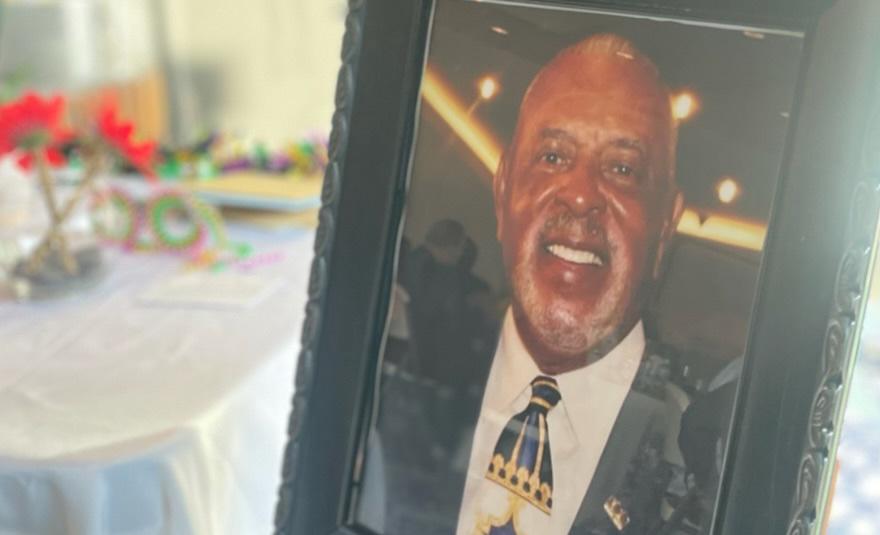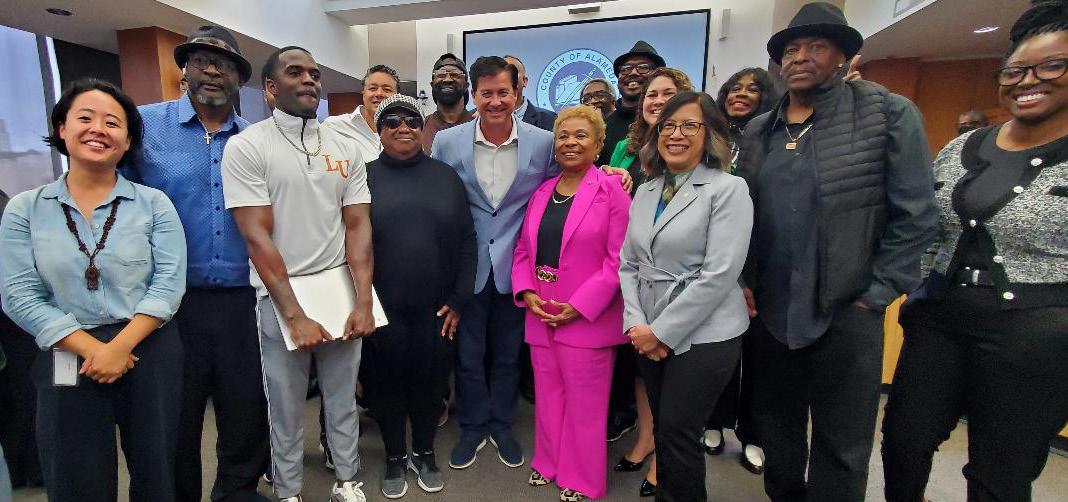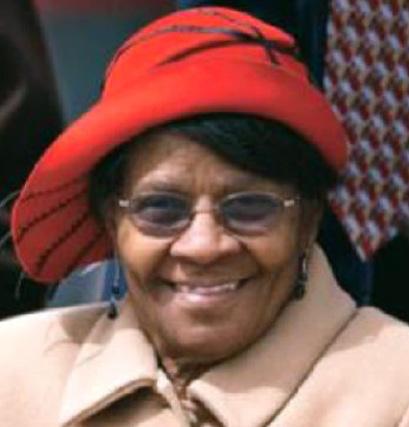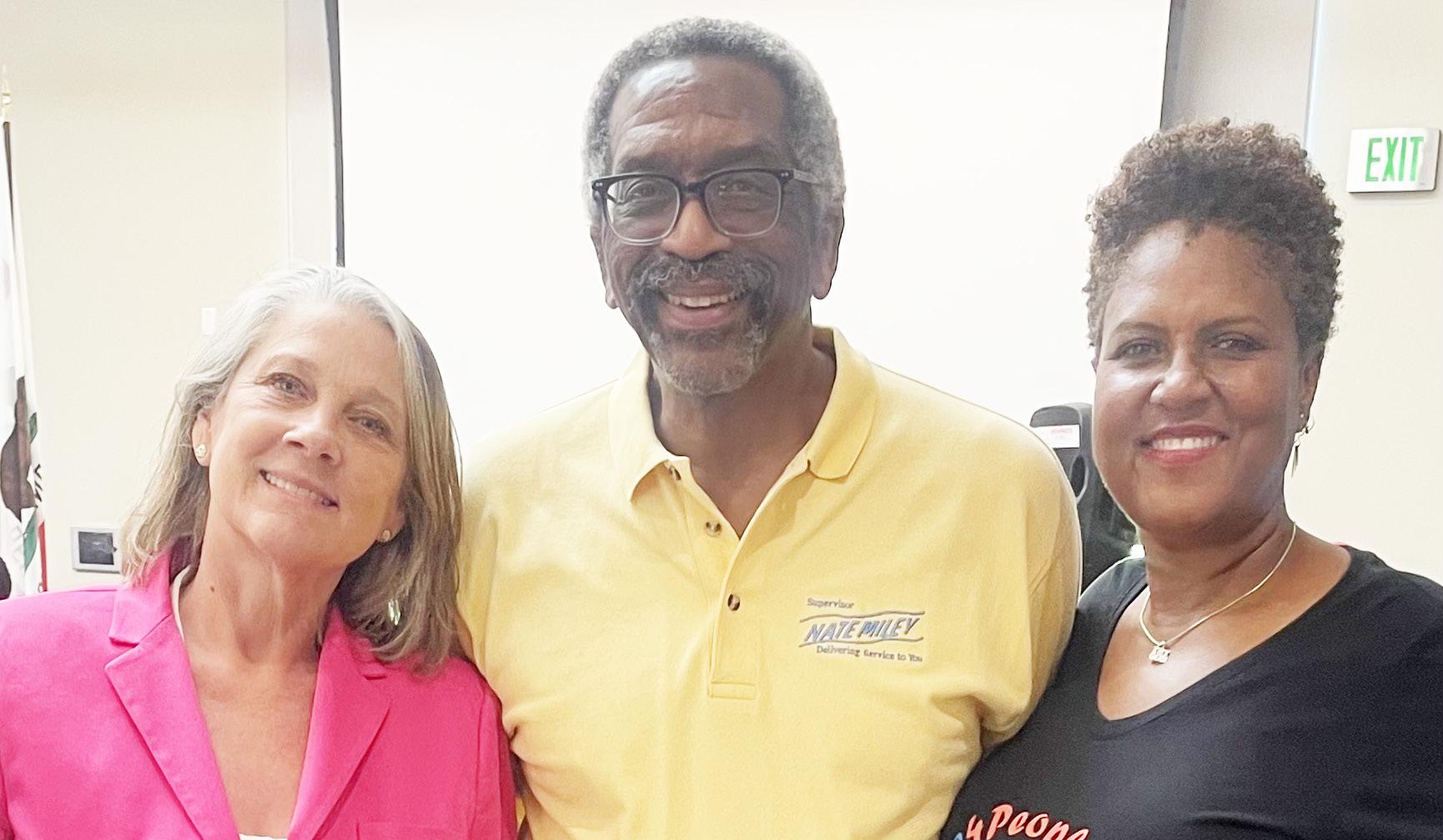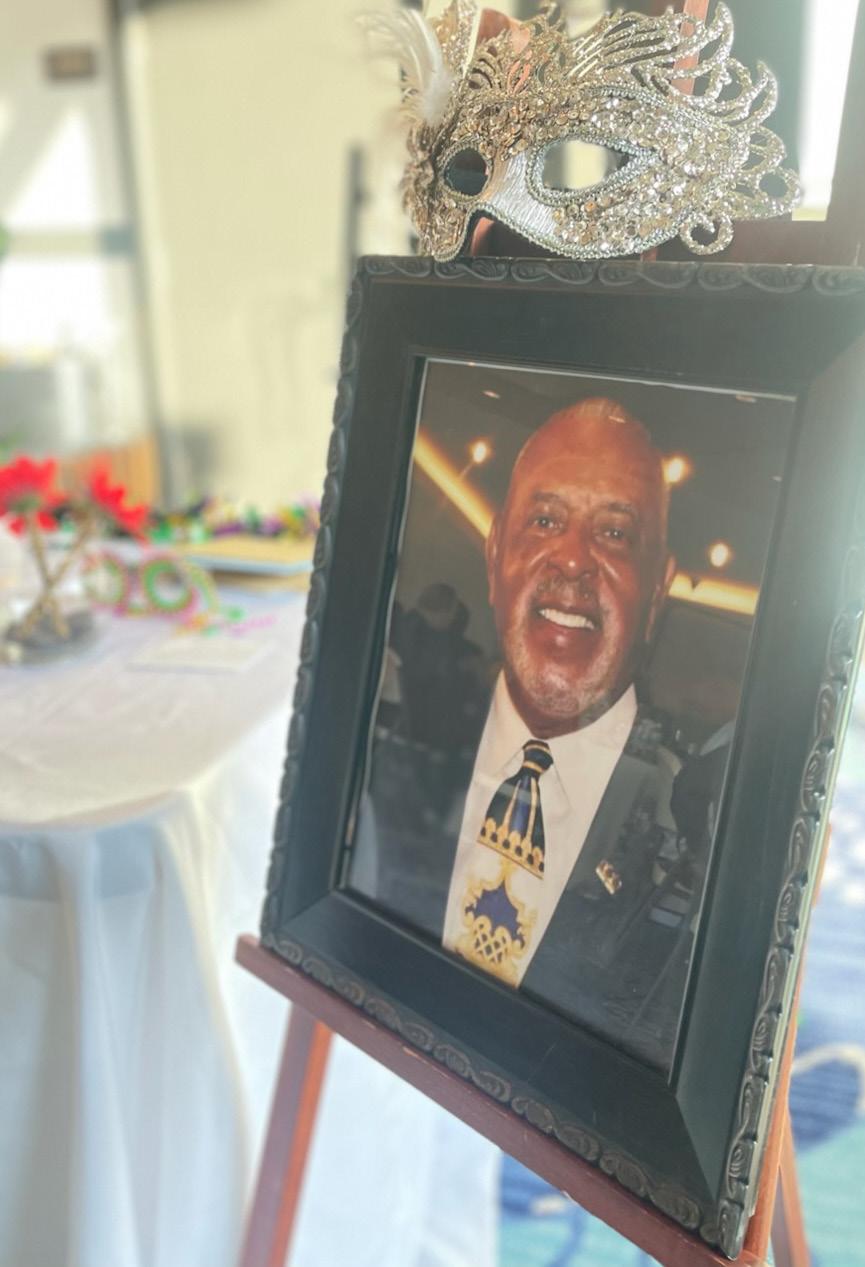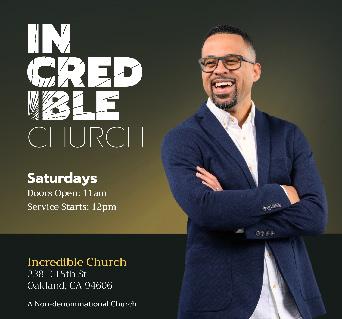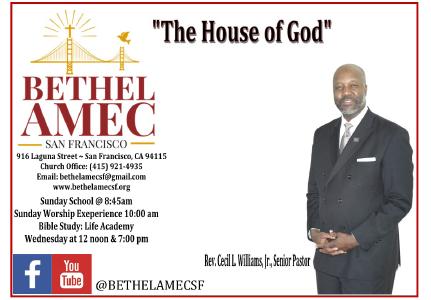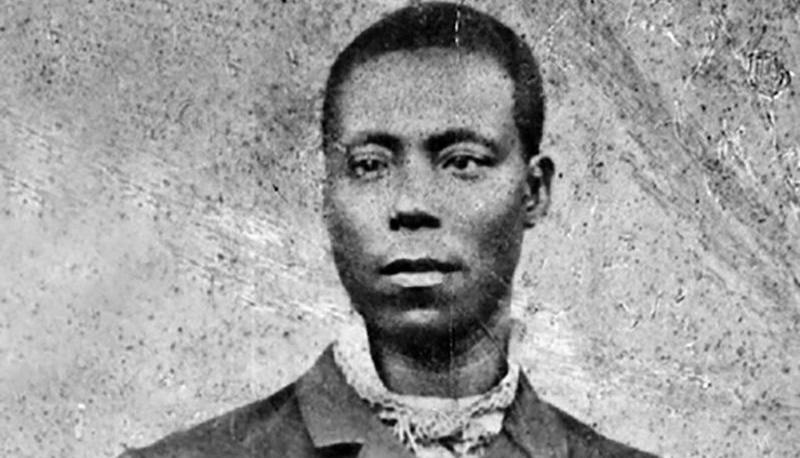there is no vision, the people perish...” Proverbs 29:18 postnewsgroup.com
County Supervisors Approve Historic Deal to Sell Coliseum to Black Development Group
Local leaders see decision as giant step forward for Oakland revitalization,
By Carla Thomas, Ken Epstein, and Magaly Muñoz
The baseball team formerly known as the Oakland Athletics has finally received a green light this week to sell its 50% share of the Oakland Coliseum to an African American development group paving the way for an historic community-backed project that could lead to an economic revitalization of the city and the region.
After months of waiting, the Alameda County Board of Supervisors voted unanimously on Tuesday to approve the team’s sale of the property to the African American Sports and Entertainment Group (AASEG), an investment group focused on community development in Oakland.
By Post Staff
By Ken Epstein
The Oakland Education Association (OEA) is organizing with teachers and members of the community to raise money for legal defense for local immigrant families that are being threatened and broken up through ICE raids, roundups, and rapid deportation.
The OEA’s Rapid Response Legal Fund has already raised almost $67,000 and is hoping to reach a goal of $100,000 by the end of summer.
“Individuals with legal representation are far less likely to be deported, but the cost is out of reach for many Oakland families, and the already strained pro bono network is overwhelmed by the influx of demand,” said a statement from the union.
Working with the school district, “The Rapid Response Legal Defense Fund will connect families in need with an immigration attor-
ney and provide funding towards a down payment on a lawyer,” the statement said.
Vilma Serrano, OEA treasurer, bargaining team chair, and OUSD elementary teacher, told the Oakland Post that the union has been negotiating with the district to increase services for “newcomer” students and families for a number of years, but after watching the magnitude of ICE raids in Los
mother to scores of young boys and girls, passed on to glory on June 1. She was 92.
She was born in Virginia to Wayman Alexander Brown and Dee P. MacQuay Brown, Aug. 20, 1932, as the eighth of 10 children. She was an energetic child who loved to play and made music spoons on the glass of windowpanes in spite of her mother’s constant warnings. She taught herself to play piano, a gift she would share throughout her life with children and grandchildren.
In a world still recovering from the civil strife of the 1800s, her parents
elected to raise their family on a farm isolated from much of the continuing racial tension. It proved to be a strengthening choice as it planted strong feelings that all people were children of God, even when many did not act the part.
By Magaly Muñoz
The Alameda County Supervisors agreed at a special meeting to use the majority of the funding from the 2020 Measure W general sales tax on investments in housing and homelessness, and a smaller portion toward essential services.
The measure funding has been collecting revenue over the last few years but was held up from being utilized because of ongo-
ing litigation that ended in recent months.
When it became clear that the money would soon be on the table, local leaders and residents urged Supervisors to use the funds to address one of the largest issues plaguing the region: homelessness.
The measure has aaccrued $810 million since July 2021.
The tax is intended to gain another $1.02 billion over the next six
Addressing a key component of her 100-day plan, Oakland Mayor Barbara Lee has convened a working group to review and provide recommendations for reforming Oakland’s Charter – specifically to better define the role of elected officials, address responsible city financial planning, and improve government accountability and transparency.
The League of Women Voters of Oakland and San Francisco Bay Area Planning and Urban Research Association (SPUR) will co-chair the working group.
“Our residents are demanding greater accountability, transparen-
By Tanya Dennis Part 7
Lisa MacCarley is a Los Angeles-based conservatorship and probate attorney who is deeply concerned with systemic flaws in the probate court system and guardianship, and conservatorship practices. In 2020, she was the first attorney to publicly support the #FreeBritney movement, identifying constitutional violations in singer Britney Spears’ 13-year conservatorship.
MacCarley has been featured in major news outlets and magazines such as the New York Times, Vanity Fair, CNN, NPR, The New Yorker, and the BBC, as well as in the documentary “The Battle for Britney.” She has been a vocal advocate for probate reform
throughout her 25-year career.
“America’s legal system, and the California probate court system, is broken because of the same reasons that so many other publicly funded institutions are broken – lack of resources,” MacCarley says. “Funding for these courts has never been adequate. Judicial officers have far too many cases to handle with the care and competence that should be dedicated to each matter.
“My observation is that most judicial officers strive to get it right but are limited by the number of hours they can expend on each matter.”
When asked what the solution is MacCarley replied, “Obviously, adequately funding the courts would be ideal, but frankly, every
By Carla Thomas
On Saturday, at the Metropolitan Golf Club in Oakland, a longlit torch will be passed to Oakland entrepreneur LaNiece Jones, naming her the statewide leader of Black Women Organized for Political Action (BWOPA).
“I’m excited to follow in the footsteps and carry forward our founding member and longtime State President Dezie WoodsJones’ vision of building a strong infrastructure across California that uplifts and supports Black women in elected and civic leadership,” said Jones. Jones has been a media and marketing professional for 35 years and holds a BS in Criminal
Special to The Post
Ida Dee Brown Peters Garrett, a civil rights champion and foster
Mayor Barbara Lee. File photo.
Abandoned cars and RVs within a homeless encampment in West Oakland, CA. The majority, 58%, of the homeless population in Alameda County resides in Oakland. Photo by Magaly Muñoz.
Alameda County Supervisors President David Haubert, center, is joined by Oakland Mayor Barbara Lee, and Supervisor Nikki Fortunato Bas and other AASEG supporters after the Tuesday vote. Photo by Carla Thomas.
Ida Dee Brown Peters Garrett. Courtesy photo.
Dis A Life Well Lived: Honoring Willie Charles Brown, Sr., Publisher of Inglewood Today ... see page 2
MacArthur Fellow Dorothy Roberts’ Advocates Restructure of Child Welfare System
Joy Goddess: A’Lelia Walker and the Harlem Renaissance
By Terri Schlichenmeyer
The Bookworm Sez
Author: A’Lelia Bundles, Publisher: c.2025, Scribner, Price: $29.99, Page Count: 364 pages
Mama said.
Mama said to be nice to others. Stand up for yourself, she said. You can do whatever you put your mind to. Stay out of trouble. Take care of yourself and those you love. Mama said a lot of things that shaped your life, and in the new book “Joy Goddess” by A’Lelia Bundles, Mama leaves a huge legacy.
She remembered a time before, and a time after.
In the before, Lelia Walker and her mother had little-to-nothing. Lelia’s father had died when she was very young, and it was up to her mother, Sarah, to put food on the table and a roof over their heads with
a
olds,
her hard work. There was simply no room for extras.
In the after — after Sarah had become Madame C.J. Walker, head of a beauty empire that catered to Black women — there was money, mansions, and a certain kind of fame. There was still hard work, too, but Lelia embraced it because she was proud of her mother’s acumen — maybe more so, in fact, after Madame made young Lelia a “full partner” with the responsibility to run some of the farther-flung accounts.
It was true that mother and daughter didn’t always see eye-toeye. Because she’d worked away from Madame for years, Lelia felt emboldened to speak her mind, but Madame often shut her down. Lelia wanted to choose her own husband, but Madame let her feelings
erts is excerpted from the MacArthur Fellows web site.
A graduate of Yale University with a law degree from Harvard, Dorothy Roberts is a legal scholar and public policy researcher exposing racial inequities embedded within health and social service systems.
about the beau be known. They argued fiercely, then acted like there was never any problem. They loved one another, says Bundles, but they were “’fire and ice.’”
Lelia, Bundles says, sought her mother’s opinion on all matters, but she didn’t often heed her mother’s words. Madame didn’t like that but as the years passed, she gave more and more of the business up, confident that Lelia (later, A’Lelia) would take care of things — and she was, overseas, as her mother’s health began to fail.
Sine 2012, she has been a professor of Law and Sociology, and on the faculty in the department of Africana Studies at the University of Pennsylvania.
Roberts’s work encompasses reproductive health, bioethics, and child welfare. She sheds light on systemic inequities, amplifies the voices of those directly affected, and boldly calls for wholesale transformation of existing systems.
Roberts’s early work focused on Black women’s reproductive rights and their fight for reproductive justice. In “Killing the Black
Filled with lush word-painted images of opulence and wealth and a sometimes-reverential tone, “Joy Goddess” is a biography that covers a lot of territory: because author A’Lelia Bundles is A’Lelia Walker’s great-granddaughter, it’s part family history, as well as Black history. It’s a business biography, too, in a large way. And it’s a love story, pure and simple, one that will appeal to any headstrong motherdaughter pair.
It’s that last part that features most strongly and builds to break hearts, even though readers are never unaware of what’s to come. Bundles is honest about how the Walker women changed surrounding lives — Madame had “adopted” a daughter with mixed outcome — and how their beauty empire positively affected Black business and culture for decades. However, she seems to push racism aside somewhat in the telling here. Instead, Madame and A’Lelia’s accomplishments and the world they lived in take front-and-center stage in this story, and you’ll appreciate that.
This is a book for readers who want a wide-reaching biography with hints of inspiration. It’ll make a great book club book or motherand-daughter tale to share. Read “Joy Goddess.”
Mama would approve.
system.
their families after CPS referral.
She also shows that blamingtural problems, while ignoring the historical roots of economic and social inequality, fails families andgrained oppressive features of the-
By Tamara Shiloh
Patents are vital legal instru-
ments used to protect inventions.
The first U.S. patent was issued in 1790. But it wasn’t until March 3, 1821, that an African American—
After nearly two decades of research and advocacy work alongside parents, social workers, family defense lawyers, and organizations, Roberts has concluded that the current child welfare system is in fact a system of family policing with alarmingly unequal practices and outcomes. Her 2001 book, “Shattered Bonds: The Color of Child Welfare,” details the outsized role that race and class play in determining who is subject to
In “Torn Apart: How the Child Welfare System Destroys Black Families—and How Abolition Can Build a Safer World (2022),”
Thomas L. Jennings: The First African American to Receive a Patent
Thomas L. Jennings—received one.
Roberts traces the historical, cultural, and political forces driving the racial and class imbalance in child welfare interventions.
Born free in 1791, Jennings was awarded a patent for his invention of a process called “dry scouring,” an early form of dry
These include stereotypes about Black parents as negligent, devaluation of Black family bonds, and stigmatization of parenting practices that fall outside a narrow set
tirely new approach focused on supporting families rather than Her support for dismantling the current system of child welfare is unsettling to some, but her provocation inspires many to think more critically about its poor track record and harmful design. By uncovering the complex forces underlying social systems and institutions, and uplifting the experiences of people caught up in them, Roberts creates opportunities to imagine and build more equitable and responsive ways to ensure child and family safety.
cleaning. Working as a tailor, he noticed that many of his customers struggled to clean certain fabrics. After experimenting with various cleaning agents and solutions, Jennings discovered a successful formula that revolutionized garment care. His patent, however, did not come without controversy. As a free man, Jennings was legally entitled to the exclusive rights
Continued on page 6
Special to The Post
Oct. 1, it was noted that eight of the 22 MacArthur fellows were African American. Among the re cipients of the so-called ‘genius grants’ are scholars, visual and media artists a poet/writer, histo rian, and dancer/choreographer who each receive $800,000 over
five-year period to spend as they
min, Jericho Brown, Tony Cokes,
and Dorothy Roberts. This is the eighth and last in the series highlighting the Black awardees.
Dorothy Roberts. Photo courtesy of the John D. and Catherine T. Ma cArthur Foundation.
Book cover. Courtesy of Scribner.
Thomas L. Jennings. Fair use.
Public Notices, Classifieds & Business
Continued from page 4
and profits from his invention. But enslaved African Americans were barred from holding patents. According to the 1793 patent law, enslaved individuals were not considered citizens and thus could not claim ownership of their inventions. The law reflected the belief that “the master is the owner of the fruits of the labor of the slave, both manual and intellectual.” Consequently, any inventions created by enslaved people automatically became the property of their enslavers.
While legal exceptions allowed for rare cases of protection, it was exceedingly difficult — if not impossible — for enslaved people to apply for, receive, or de-
Honoring
Continued from page 2
founded Inglewood Today to give residents a voice and counter narratives of the community too often distorted in mainstream media. The paper soon became a trusted source of local news, community commentary, and political accountability.
“Willie and Inglewood Today were an institution,” said Inglewood Mayor James T. Butts. “There was no paper more informative or reliable. He was more than a publisher — he was an anchor in the community.”
Brown’s influence extended beyond the newsroom. He was a mentor, civic partner, and connector. He backed emerging leaders and elevated community concerns before they made it into city council agendas or campaign platforms.
Councilmember Gloria Gray, a longtime friend and early supporter, read a city
fend patents. Patent rights were not formally extended to them until 1861.
Pat Sluby, a retired U.S. patent examiner and author of The Inventive Spirit of African Americans, noted: “He [Jennings] is the earliest [African American recipient of a patent] that we have recorded… This is 44 years before the end of slavery.” Sluby also described Jennings as “a very good entrepreneur and businessman.”
Jennings became a tailor in his early twenties. His craftsmanship was so exceptional that customers from near and far sought his services. His growing reputation led him to open a shop on Church Street in lower Manhattan, which eventually became one of New York City’s largest clothing stores.
He earned a substantial income
proclamation honoring Brown’s impact on local media and public life.
“Through his unwavering commitment to journalism,” she said, “Mr. Brown informed the public, empowered the voiceless, and ensured our stories were told.”
Hardy Brown Sr., founding president of California Black Media, credited Brown as a foundational voice in the network’s formation. “He came to every meeting,” Hardy recalled. “He believed in the vision of creating a statewide Black press infrastructure.”
For Kenneth Miller, publisher of the South Bay Black Journal and former publisher at Inglewood Today, Brown was both mentor and friend. “Willie trusted me with his baby,” Miller said. “That paper was his heart. I will do whatever I’m asked to keep his legacy alive.”
As print media faced economic headwinds, Brown stayed committed to Inglewood Today. During the pandemic, Brown worked to secure advertising from
as both a tailor and an inventor. Jennings used much of his wealth to support the abolitionist movement and to purchase his family’s freedom. A respected leader in New York’s abolitionist and civil rights circles, he co-founded the Abyssinian Baptist Church and served as a trustee. He was also the assistant secretary at the First Annual Convention of the People of Color in Philadelphia in 1831, and in 1855 helped organize the Legal Rights Association, which challenged racial discrimination and supported legal defenses for civil rights cases.
Jennings died in New York City in 1856. In a tribute, Frederick Douglass emphasized the significance of his patent, noting that it recognized Jennings as a “citizen of the United States” — a status that, at the time, startled many.
the Rams, Chargers, and Clippers to keep the publication alive.
Outside the newsroom, Brown’s favorite space was the golf course. His golfing circle became a second family, one that shared stories at his memorial about his wit, generosity, and optimism. Friends recalled “Willie-isms” like “shankopotamus” for wayward shots, or “Saddam Hussein” when a player bounced from sand trap to sand trap.
Speakers at his Celebration of Life, held July 18 at the CenterPointe Club in Playa Vista, remembered Brown as principled and progressive. He championed women’s rights, spoke out against injustice, and believed Black-owned media should be unapologetically communitycentered.
In the words of his longtime friend James Black: “When someone you love becomes a memory, that memory becomes a treasure. Willie Brown was a treasure.”
CITY OF OAKLAND REQUEST FOR PROPOSAL (RFP)FOR OPW HR INVESTIGATIONS
Contract Amount: TBA Terms: 5 Years
Project Description: The City of Oakland, Department of Public works (OPW), Administration Division, seeks two investigator companies who can provide support on behalf of OPW in conducting interviews, gathering evidence, and preparing comprehensive investigation summary reports. Investigators will also handle complex cases, such as potential standby fraud, by meeting with complainants to define the investigation scope, conducting and transcribing interviews with witnesses and subjects, and drafting detailed interview summaries.
Proposal Submittal Deadline: Friday, August 15, 2025, by 2:00 P.M. via iSupplier.
Reminders:
• All who wish to participate in this RFP must register (at least 5 days prior to submittal due date) through iSupplier at (https://www. oaklandca.gov/services/register-with-isupplier) to avoid last minute submittal complications and receive addenda/updates on this RFP. For additional help registering and submitting your proposal to iSupplier please watch the user guide videos at (https://www. oaklandca.gov/documents/isupplier-user-guides). Receipt of a confirmation email indicates that a proposal was successfully submitted.
• Did not receive and invitation? Start Early with iSupplier registration. Upon completion of registration, send an email to iSupplier@ oaklandca.gov listing “RFP for OPW HR Investigations” as the subject and request an invitation to the RFP. The Contract Analyst will add your business to the RFP invitation.
• The following policies apply to this RFP: Equal Benefits • 0% L/SLBE • Living Wage • Campaign Reform Act • Professional Services Local Hire • Prompt Payment • Arizona Boycott • Dispute Disclosure • Border Wall Prohibition • Sanctuary City Contracting and Investment Ordinance.
Answers to Questions:
1. For project-related questions contact Contract Administration via email at ContractAdmin@oaklandca.gov
2. For iSupplier related questions after registration email iSupplier@ oaklandca.gov
Asha Reed, City Clerk and Clerk of the City Council, The City Council reserves the right to reject all proposals.
Thomas L. Jennings ...
Willie Charles Brown, Sr. ...
Black History For more info on hours, admission prices, and events hosted by BAMPFA, visit bampfa.org.
By Anka Lee
In time for Juneteenth, the Berkeley Art Museum and Pacific Film Archive (BAMPFA) hosted “Routed West:Twentieth-Century African American Quilts in California,” an exhibition showcasing the work of over 80 Black artists and the stories behind each quilt on display. It is open to the public from June 8 through Nov. 30.
The exhibition serves as a reminder and tribute to the families and lives that were irrevocably changed by the Second Great Migration. From 1940 to 1970, many African American families migrated to the Northeast, Midwest, and West, in search of greater opportunities away from the oppression and racial inequality that was prominent throughout the South. At the time, a number of the families had to leave their homes behind with nothing but the clothes on their backs and a hope for a more prosperous future.
I first visited the exhibition on
June 28, a Saturday. The admission ticket into the museum for youth ages 14 - 18 is discounted from $18 (general admission) to $5. Once admitted, visitors are welcome to check out any of the exhibits within the museum.
Inside, quilts of a variety of shapes, sizes, colors, and age are hung on the walls—some of which have a “touch label” beside them that allow visitors to physically touch the stitching and texture of a small replica of the quilt.
Other quilts hang from the ceiling at the center of the room, while those similar in size and texture are draped across a backboard. Throughout the many sections of the exhibition, the more fragile pieces such as dolls, books, and other historical items from the 20th century are presented in glass cases.
Quilts played an important role not only in keeping them warm, but in preserving the stories of each family that was involved in
the migration. Those quilts were brought across the country by descendants of their original creators, harboring years of tradition within their stitches.
An elderly patron expressed her bewilderment and surprise at the detail of the pieces: “My head hurts thinking about the amount of work and people needed to stay focused [to complete the quilts]; their imagination and focus knocks my socks off.”
Curator Elaine Yau explained the history behind multiple quilts in a tour that helped visitors learn in depth about the significance of those pieces.
“These quilts carry memories,” she explained, “many of these patterns are used to portray family.” One standout piece she explored was a puff quilt made from cotton tobacco sacks, created by Annie Crawford in the early 1900s, preceding the Second Great Migration.
In addition to telling individual stories of certain quilts, Yau delved deeper into the craftsmanship and techniques used to create them as well, including patternbased and improvisational quilting that is incorporated into a majority of the pieces.
The skill of the craftsmanship of quilts was passed along to newer generations, and it “spurred the creation of a new wave of African American quiltmaking,” their roots becoming more westernized as more families brought their craft, traditions, and history with thems.
In Canada, those who follow the news are Epstein obsessed.
Trump campaigned on the idea of releasing the Epstein files, a matter that appealed to conspiracy theorists who believe pedophilia is the worst crime imaginable and that the perps were elite, rich, Democrats.
And now we are getting a taste of what is undoubtedly in the Epstein files.
It makes people demand more.
Trump’s MAGA supporters have been apoplectic since Attorney General Pam Bondi’s announcement (probably at Trump’s suggestion) that Epstein committed suicide in his jail cell, and that there was no Epstein client list.
By Emil Guillermo
I’m in Canada doing my comicmonologue-one-man-show, “Emil Amok, 69.”
Because of the news, I talk about Jeffrey Epstein and Donald Trump.
So come out and see for yourself if you’re close.
There’s speculation Jeffrey Epstein and Donald Trump shared a secret.
That’s the implication of the exclusive Wall Street Journal report about a birthday letter to Epstein Trump is said to have written and signed.
The letter as described by the Journal was salacious: “It contains several lines of typewritten text framed by the outline of a naked woman, which appears to be hand-drawn with a heavy marker. A small pair of arcs denotes the woman’s breasts, and the future president’s signature is a squiggly “Donald” below her waist, mimicking pubic hair.”
The letter ends: “Happy Birthday-and may every day be another wonderful secret.”
The letter was reportedly written in 2003 in time for Epstein’s
50th birthday, just three years before he was first arrested in 2006.
Trump denies he wrote a letter to Epstein. Trump has also sued the Wall Street Journal.
The New York Times also quotes Trump from around 2003: “I’ve known Jeff for 15 years. He’s a lot of fun to be with. It is even said that he likes beautiful women as much as I do, and many of them are on the younger side. No doubt about it — Jeffrey enjoys his social life.” Should we care?
You should if you care about the character of the man who is in charge of our country.
The letter adds fuel to the conspiracy fires.
Epstein died in his jail cell awaiting trial in 2019 on sex trafficking charges.
His alleged co-conspirator Ghislaine Maxwell is currently serving 20 years after her conviction of child sex trafficking and other offenses connected to Epstein.
But the real victims are all the young women subjected to abuse in the enterprise.
Don’t lose sight of that.
Nothing to see here.
At the time, as a non-MAGA observer, I cheered Bondi for finally telling the truth.
But the conspiracy driven MAGA folk want the files released. All of it. Trump, they say, was voted in because he wasn’t the “Deep State.” And now he stands before them as his own version of the swamp.
For the first time, Trump, MAGA, and Republicans are on the verge of an implosion.
And now Democrats are realizing, this is a political thing. They’re joining Republicans demanding transparency.
Our divided country has united.
Only it’s not about health care, civil rights, or the economy.
About the Author Emil Guillermo is an awardwinning journalist, commentator, and comic stage performer. See him on www.YouTube.com/@emilamok1
If in Canada, see him this summer live on the Canadian Fringe Festival Theatre tour.
Visitors gather around hanging quilts. Photo by Anka Lee.
Mayor Lee Initiates Working Group to Reform Oakland’s Charter ...
Continued from page 1
cy, and effective service delivery,” said Lee. “This working group ... (will make) recommendations for Charter Reform in the areas of elected officials’ decision-making, responsible city financial planning, and government accountability and transparency.”
Convened by Lee and Oakland City Council President Kevin Jenkins, the working group will begin meeting in August. It will provide recommendations to the mayor
and City Council by January. Any amendments to the charter must be approved by Oakland voters.
Besides the organizational cochairs, the working group will include:
• Fred Blackwell
• Hon. Barbara J. Parker
• Corey Cook
• Ben Rosenfield
• Zach Goldman
• Ahmed Ali Bob
• Mark Morodomi
Teachers’ Union Raises $67,000
...
Continued from page 1
Angeles, it became clear that there was a need to do much more.
“We really kind of shifted to trying to figure out how to be part of a larger rapid response network as well. We began raising money in the spring,” she said.
“We’ve been raising it through the Immigrant Family Defense Fund,” a local nonprofit, she said. “They helped us set up a fund within their organization, earmarked for legal defense for OUSD.”
To raise money, OEA members held fundraisers at restaurants and organized other events. They also distributed flyers and canvassed in the community and with small business owners to seek donations, Serrano said.
Families in need of funds for legal representation should contact the Oakland Unified School District.
To donate money, go to tinyurl. com/OEALegalDefenseFund
The Case Against Probate ...
Continued from page 1
citizen who is able to plan for incapacity and ultimately death has an obligation to do everything they can to stay out of court. Same goes for property, if you fail to plan, you are planning to fail.
“There is no reason why every competent adult should not have an up-to-date and signed Durable Power of Attorney and Health Care Directive, trust and will. In other words, each of us has an obligation, to the greatest extent possible, to stay away from the probate court system and keep our families out as well.”
Over 72% of Americans lack a valid will and trust, and most have never created an estate plan or made plans for their legacy.
“We need people taking action to stay out of court,” MacCarley says. I know of a recent case where a woman’s estate plan was set aside and relatives who she barely knew inherited her estate. The woman failed to make an estate plan until after she was diagnosed with cancer. This is a classic example of failing to plan and planning to fail. Do not wait until there is a mortal diagnosis.”
Many times, even after careful planning, wishes are challenged by relatives or people who feel entitled. To avoid challenges, proactive steps to minimize the
risk of the will or trust being contested is crucial.
Make sure the will and revocable living trust are properly executed. Assets in a trust are usually distributed directly to beneficiaries without going through the court system. Include a no-contest clause that states anyone who contests the trust loses any chance of inheriting anything.
A Durable Power of Attorney and Advanced Health Care Directive must be a part of the estate plan and your plan must be discussed with family members well in advance of impending illness or death.
Recording the meeting provides extra insurance if mental capacity or lack thereof becomes a factor in court. Advanced planning reduces potential disputes and eliminates misunderstandings and resentment.
MacCauley concludes, “The dedicated people fighting to reform the probate court system are the United Seniors of Oakland and Alameda County Supervisor Nate Miley and his team. As Baby Boomers are starting to turn 80, expect there to be record numbers of people who will be entering the Court system, and frankly, that should be of concern to everyone.”
LaNiece Jones ...
Continued from page 1
Justice from California State University - East Bay and a master’s degree in social entrepreneurship and change from Pepperdine University. She has served BWOPA for over 25 years as executive director. Currently serving as vice mayor of Oakland with the new mayor, Barbara Lee, Jones says she is committed to the advancement of the movement started by BWOPA in 1968.
“I’m committed to continuing the advancement of the movement and growing Black political power while empowering Black women to lead boldly across public and private sectors, while advocating for one another and the communities we serve,” said Jones.
BWOPA’s mission is to educate African American women about the political process. In doing so, the organization seeks to inspire, activate, promote, and support the involvement of Black women in politics to uplift the community.
“Our goal is to train as many African American women as possible,” said Jones, who says mentors were a big part of her journey. I’m proud to have been poured into and mentored by the best of the best (Dezie Woods Jones).”
BWOPA was founded in 1968, an outgrowth of a group calling itself Bay Area Women for Dellums. This group consisted of 12 politically active women – including
Ida Dee Brown Peters Garrett, 92 ...
Continued from page 1
Tyrone, James Daniel III, Yvette Twanna and Pamela Annette.
This energized couple committed themselves to Christ and he became a Baptist minister. As first lady in the congregation, she ministered to families and young mothers. This calling would take them to a congregation in Bridgeport, Connecticut, into the heart of the Civil Rights movement.
The inspired words of the Declaration of Independence, plus the chain-severing Emancipation Proclamation, would find them hosting leaders and speakers from throughout the civil rights community. Meetings to develop strategies, to calendar and plan demonstrations were numerous.
Regular events included sessions at the home of Jackie Robinson with local and national leaders, cap-stoned with frequent visits by Dr. Martin Luther King Jr. calls numerous times at her home when her husband and Dr. King would crawl around the living room floor playing with each other’s children on their backs.
Working together, she helped her husband and Dr. King create the Southern Christian Leadership Conference in the 1950s. For the March on Washington in 1963, the Peters family helped organize transport for activists, personally marching at the Lincoln Memorial. She marched across the Edmund Pettus Bridge in Selma, Alabama, in 1965.
Many would come to know King because of Dee and her fierce support of him as a good, Godfearing Standard Bearer for social and political justice.
Paths would ultimately diverge and as a single mom with three children, Dee found her way to Californis, first to Sacramento, then Elk Grove. She would meet and marry Bob Garrett in 1973. Several years later he would pass and as a single mom again, Dee committed to becoming a foster parent, mothering over 50 boys and girls and eventually adopting two: Emon Williams and Ezekiel Garrett.
Dee’s personality, sharp wit, sense of humor attracted many friends over the years and with their love and care, she would embrace the Restored Gospel of Jesus Christ, becoming a member of the Church of Jesus Christ of Latterday Saints. She served as pianist — with a passion, and as organist numerous times. Dee leaves us with a sure knowledge that this life is but another step on our journey because Christ promised that there is much more to come!
A memorial service will be held on Sat. July 26 at 11 a.m. at Elk Grove Stake Center, 8625 Vintage Park Drive (at Elk Grove-Florin Road), Sacramento, CA 95829. For more information, please call Mark Jansson at 916-417-9400.
Alameda County Supervisors Commit to Using Majority Measure W Funds ...
Continued from page 1
fiscal years, which means it would have accrued over $1.8 billion by the time voters have a chance to potentially renew it.
The existing and future funds will go into three pots: Home Together 2026 Plan, which addresses homelessness and housing issues across the county; an essential services fund, which will look to offset loss of federal grants in sectors like healthcare, food, and social services; and a prudent reserve.
County staff recommended a one-time allocation of $170 million from the existing $810 million account to put in the reserve, which they argue Supervisors could use for future deficits or timely projects.
reminded the Board that past members promised homelessness would be eradicated in 2026, and with that year quickly approaching, the crisis has only gotten worse so they need to work towards solutions that are bringing results.
“We’re never going to fix [homelessness] the way we’re going. I’m afraid,” Haubert said.
County Supervisors Approve Historic Deal ...
Continued from page 1
This sale may represent the largest transfer of real estate wealth to African Americans in U.S. history, according to many observers.
ASSEG already had won approval to purchase the City of Oakland’s 50% ownership of the Coliseum and its surrounding property. The deal for the entire property, now a major step closer to completion, still must go through escrow, which is scheduled to close on June 30, 2026.
“We’re finally here, and congrats to all involved. This is a big step in the right direction,” said Board of Supervisors President David Haubert, who played a major role in finalizing the deal.
Emphasizing that the agreement is complicated, he said, “We have conditions that need to be met in order to close, but we’re headed in the right direction.”
Said Supervisor Nate Miley, “I can now proudly say that it has become clear that having a team of African Americans from East Oakland taking an interest in the property is a tremendous moment in history.”
He said he admired the tenacity of AASEG founder and managing member Ray Bobbit and team member Oakland developer-engineer Alan Dones.
Jim Reynolds, CEO of Loop Capital, the African American financial group that is backing AASEG, was enthusiastic about the supervisors’ approval.
“We are pleased to achieve this long-awaited milestone,” he said.
the City of Oakland, the historic and centrally located Coliseum site is prepared to have a more vibrant future with united ownership.”
AASEG is proposing to build a multibillion project at the Coliseum site with restaurants, housing, and entertainment developments. One-fourth of the new housing will be affordable, and there will be a community benefits agreement covering the hiring of construction workers.
“This is a historic vote because I know that East Oakland has very much been disinvested in, and it really paves the way for a single owner … to pursue economic development with the City of Oakland,” said Supervisor Nikki Fortunato Bas, who advanced the project while she was a member of the Oakland City Council.
“The diligence and perseverance of everyone in this room and many more not in this room is what makes Oakland and Alameda County so special,” she said. “This is great for the entire region.”
Post News Group Publisher Paul Cobb emphasized the significance of the decisions by the City Council and Board of Supervisors, saying that now an African American group is one year away from owning the Oakland Coliseum.
“Today will go down in history,” he said. “This is a great day, a very special day.”
Woods Jones – from various Bay Area cities under the leadership of Edith M. Austin. At the time, it was Paul Cobb, a political activist running for Oakland City Council, who labeled the group Black Women Organized for Political Action.
The small group grew to over 200 Black women who ran a successful fundraising campaign of $75,000 and succeeded in electing Ron Dellums to Congress. The original group members continued to meet and expanded their work on other political issues.
BWOPA’s power-building initiatives include the DWJ Public Policy Leadership Fellowship, the Annual Legislative Learning Day in Sacramento, the Young Adult State Leadership Council, the Ella Hill Hutch Awards, the Sister Circle Legacy Leaders, and their health and wellness initiative, Uplifting Us.
The organization also hosts a three-day certificate training through their BWOPA TILE (Training Institute of Leadership Enrichment) program. The program arms leaders on the rise with psychological, philosophical, and practical tools essential to lead and work within communities. The program also highlights the historical achievements of African American women while exposing participants to best practices and leadership models.
In December, the Board committed $395 million to go towards Home Together, and another $6.5 million to go toward food and social services once the measure funding became available this year, leaving just over $230 million to use from the existing funds.
With a projected revenue of over $1 billion until 2030, the Board will have about $170 million to use each year.
Aside from the one-time reserve allocation, the funding will be an 80/20 split between Home Together and essential services, with homelessness taking the larger pot.
County staff said they were “conservative” in what they estimated the total revenue could amount to, meaning there’s a possibility that the county could accrue over their intended $170 million a year. Supervisor Nikki Fortunato Bas argued that any funding gained over the estimated yearly revenue should go directly to homelessness services to mitigate the ongoing crisis, and the rest of the Board agreed.
Priority investments for the Home Together fund include homelessness prevention, expanding shelters, increasing housing, and offset of lost grants from the federal government after the recent passing of Donald Trump’s “big, beautiful” budget bill.
Supervisor David Haubert
Haubert encouraged county departments to find new ways to fix the issue, including looking into methods beyond sweeping and building new shelters from the ground up. He suggested acquiring already existing apartment buildings to house unhoused people in order to avoid costly and time consuming new housing projects.
City leaders across the region, particularly in Oakland, have been urging the Board to fairly allocate funding to the places where homelessness is most prevalent. Oakland currently holds 58% of the county’s homelessness population, according to Point In Time data.
“All of you guys represent an area where people are literally dying in our streets. And so we have the resources with Measure W to start getting people off the streets,” Oakland City Councilmember Kevin Jenkins told the Board during public comment.
But the measure funding will not be going directly to the cities as many had hoped.
Supervisor Elissa Marquez clarified during board discussion that the money would be going to direct services and providers, such as community-based organizations and nonprofits.
Which groups and services get funding and how much will be determined over the next few months, the Board said, and in the meantime, they will be hosting another special meeting on July 30 for additional voting and details, along with county staff recommendations on priorities for urgent funding.
Bobbitt, who has been a public spokesperson for the project, said, “I feel blessed. This means everything for my team and Oakland. This is a step forward for something we’ve worked on for a long time, with a lot of perseverance and patience.”
The deal between the A’s and AASEG to purchase the team’s share of the 155-acre site for $125 million was signed in August.
The A’s had originally bought its interest in the Coliseum from Alameda County in 2019 for $85 million. The sale of its share to AASEG required approval from the Board of Supervisors, which repeatedly postponed its decision.
AASEG also signed a deal last August with the City of Oakland to purchase the other half of the Coliseum for $105 million. The closing date for that agreement has been postponed to January to align the deal with the County.
“The Coliseum is a part of Oakland’s past, present, and future. It’s a place where generations have come together, and it will continue to be a space rooted in community, culture and pride,” said Oakland Mayor Barbara Lee in a statement to the Post.
“My office is committed to working with partners to ensure this next chapter creates real opportunities for East Oakland and reflects the values of our city,” she said.
Former City Councilmember Rebecca Kaplan, who helped develop the Coliseum deal, cheered the supervisors’ decision.
“I’m so thrilled that the many years of effort has advanced to this important step,” she said.
“With (Tuesday’s) approval by the Alameda County Board of Supervisors, along with the work we previously advanced through
Geoffrey Pete, owner of Geoffrey’s Inner Circle event venue, thanked the supervisors for their decision.
“It’s just so phenomenal,” he said. “We, as African Americans, have committed so much to the athletics, arts, and entertainment industries worldwide. It’s fitting to have an African American group lead the way.”
Oakland City Councilmember Noel Gallo said, “I am in full support of the AASEG. We need the Coliseum developed to make it benefit the community.”
Oakland City Councilmember Ken Houston said, “This historic day will, in effect, create change for the entire area. It will revitalize the area, bringing in investments, because the AASEG represents true leadership under one umbrella.”
Chris Rachal, AASEG advisor and owner of Mexicali Rose, said the loss of sports teams has left a void in the city. “It’s important for us to keep things alive for the culture and the city,” he said. “This is important for this to happen for us by us, and with us as a community.”
AASEG team member John Jones praised the power of collaborating with leaders who are committed to the community and the healing properties a project of this kind brings to the people of Oakland, who have been harmed by historic eminent domain and current regentrification.
“This project will bring healing to the County and Oakland,” he said. “The leadership in this room has been courageous and is doing the right thing.”
Shonda Scott, also an AASEG team member, said, “Reinvesting in the Coliseum and making it a major development project represents jobs, opportunity, and a bold step toward community-led revitalization.”
